Welcome to our world travel site. Part of travel is experiencing different climates along with cultures, food and landscapes. Many dream of tropical beaches and enveloping heat and for a 2-week holiday, it can be wonderful. But what about long term? What’s it like to slow travel, live as a digital nomad, or even emigrate to the tropics? We did just that, we moved to live in a tropical climate as expats over a decade ago, with two very small kids. We moved to Far North Queensland Australia, very close to the equator (16 degrees south) and about as tropical as it gets. Subsequently, we spent years in the heat and humidity of tropical Southeast Asia in Thailand, Vietnam, Singapore, Bali and in the equatorial climate of Malaysia, as we travelled the world. What are the pros and cons of living in a hot climate?
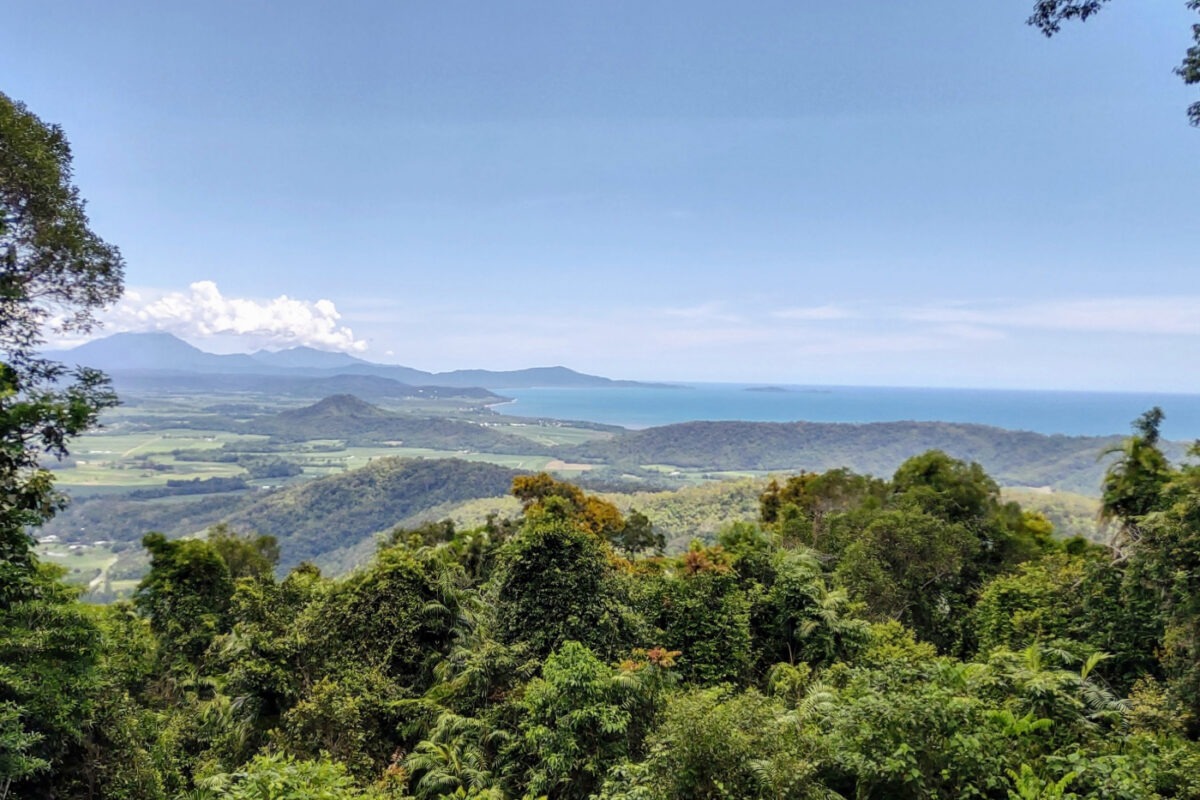
In this blog post, we’ll also give you some tips on staying cool, packing, what to wear and behaviours that will help you keep your cool in tropical heat. This post is the property of world travel family travel blog and may not be reproduced elsewhere.
Living in the Tropics
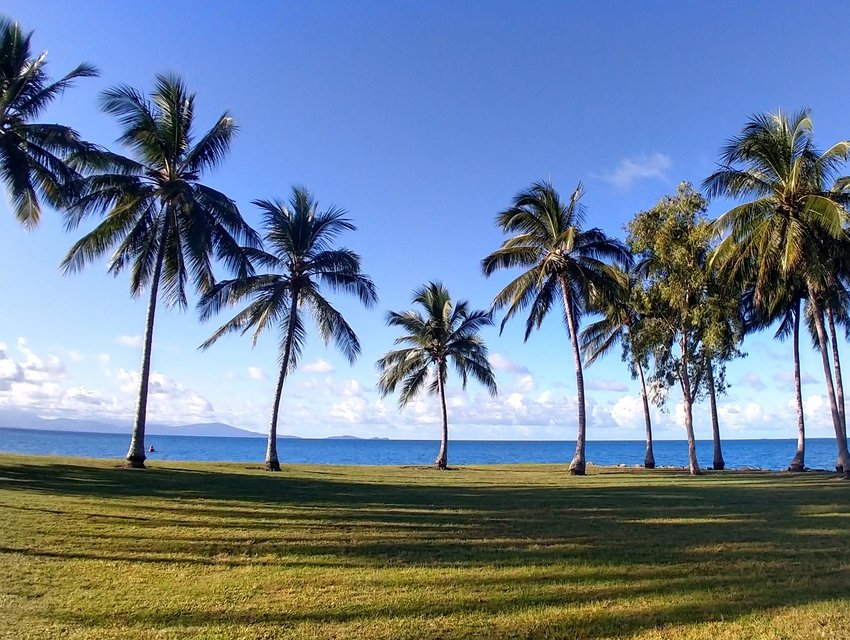
Nobody can possibly object to coral beaches, irridescent blue butterflies, tropical blooms, and that relaxed tropical vibe, but what about the down sides? We’ll try to tell you about some considerations of tropical living that maybe you won’t know about.
Tropical Heat and Humidity
Heat can do strange things to your energy levels, skin, hair, your sleep quality, everything. It can really mess with you if you’re from cooler climes. A few things to know about tropical living, that nobody else may have mentioned, are below.
- Your hair may become super wavy, frizzy or curly. My son develops tight curls.
- Sweating a lot can deplete your body’s minerals causing ill effects. You may need to replace them.
- Fungal skin infections can be an issue and some are very contagious where bare skin touches surfaces.
- Bites can become infected fast, be careful.
- Wearing makeup in the tropics can be a struggle, I’ve never mastered it. After a shower applying make-up seems fine until the sweat returns and your foundation starts sliding off your face. Maybe there’s a way, but I’ve never found it.
Tropical Living Tip: Take cooling showers often or jump in a pool. Cooling yourself down like this cuts the need for aircon and keeps your bills and energy consumption down.
Tropical Wildlife and Bugs
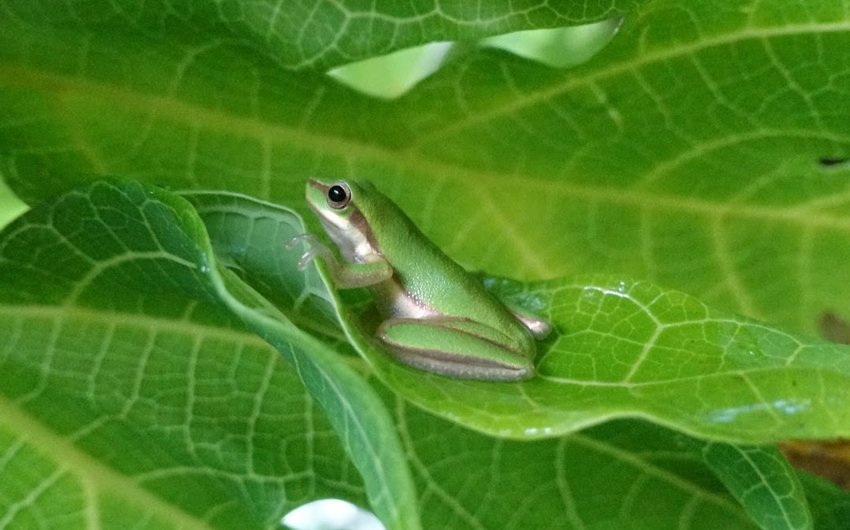
In the tropics the major wildlife issue you will probably face is mosquitoes and the diseases they carry. If you’re an arachnophobe, you may have spider issues too, although, honestly, the spiders in the UK were far more of a problem than anything Australia or Asia have ever thrown at us.
There are also snakes, scorpions, crocodiles, poisonous jellyfish, monkeys, and sharks, amongst other things. I can honestly say that I’ve never been eaten or stung by anything particularly venomous.
In 6 or 7 years of full-time travel and the same amount of time living in the tropics I’ve seen fewer than 10 snakes and maybe 5 huntsman spiders. Does that help? Beautiful butterflies, birds, monkeys, even dolphins make more frequent appearances.
A few usefull posts on tropical wildlife below.
- Mosquitoes. The best way to avoid mosquito bites is to modify your behaviour. Tips for avoiding mosquitos.
- Dangerous jellyfish, box jellyfish and Irukandjie are well known in Australiann tropical waters. When they arrive we call it Stinger Season and take massive precaustions. But other countries also have increased risk. Read about Stinger Season here.
- Living with salt water crocodiles – we lived in a place with plenty of crocs, although not nearly as many as The Northern Territory. Crocodiles are more widespread than you might think. The salties are found throughout the tropics, SouthEast Asia and up into India. Crocodile related incidents are pretty rare though.
Cockroaches and a multitude of flying bugs love the tropics. Expect the unexpected. Ants are an ongoing problem anywhere tropical.
Tiny sugar ant in Vietnam, Thailand, Australia, Malaysia and Cambodia, seem to have a particular love of making homes in our laptops. They’re just a fact of life. Any food crumbs, blood or protein-containing substance on floors, fabrics and counters will be a magnet for ants and waste animal products in bins soon become infested with maggots.
Tropical Living Tip: If you need to put anything in your bin that flies and maggots will love, keep it in your fridge or freezer until bin collection day. Put it in the bin at the last minute.
Tropical Plants Can Be Hazardous
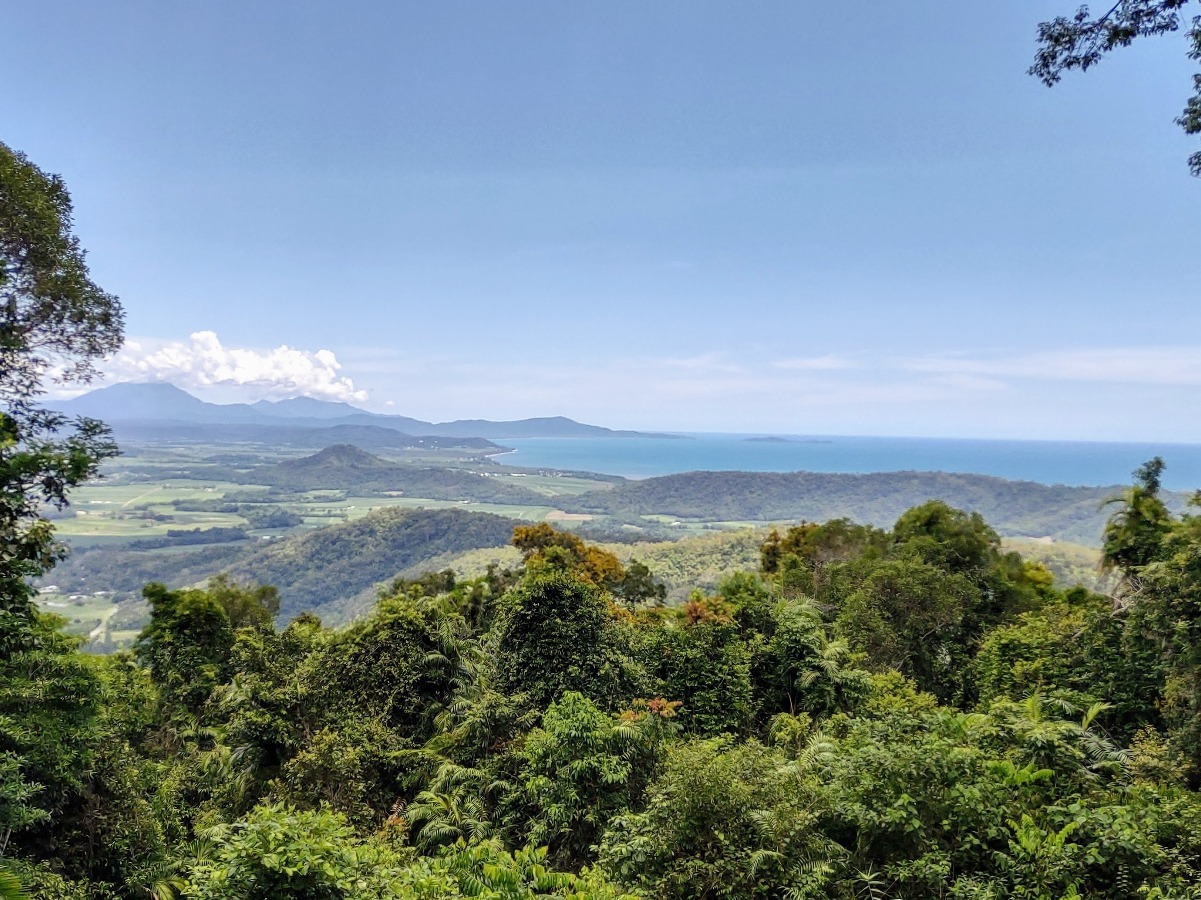
Stinging tree, gimpie gimpie, have you heard of it? While we all love frangipani, swaying palms, hibiscus and easy-to-grow tropical fruits, some tropical plants are out to get you. We have a post on the stinging tree, where to find it, and its dangers.
If you’re a gardener you’re in for a treat. Tropical gardening and food harvesting go on year-round. There’s no real downtime as we have in a temperate winter. That said, growing plants in the tropics is a whole new ball game and you will have much to learn, as I did.
We have a small post on gardening in the tropics and we’re working on a new website on that subject, it’s here and we’re on Instagram covering tropical living and gardening on a homestead or farm in tropical Queensland.
Tropical Living Tip: Never, ever, walk under or sit under a coconut tree. Just don’t!
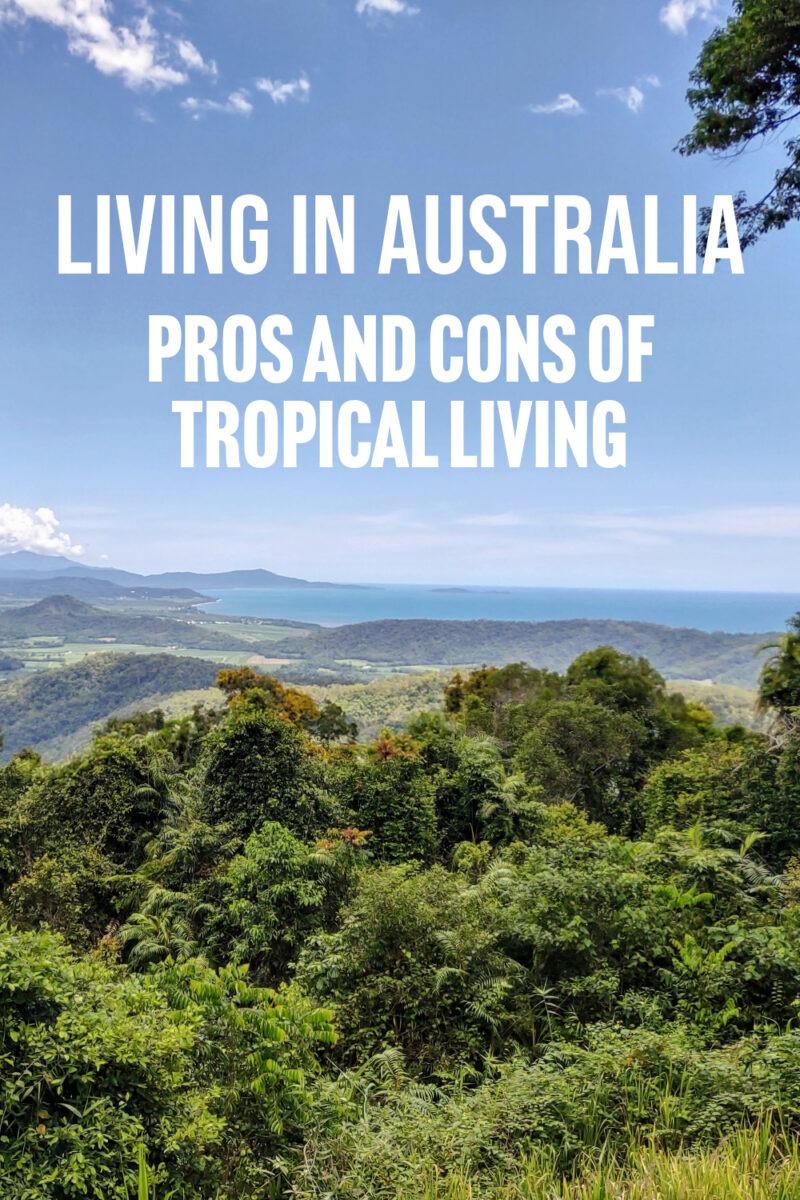
Mould, Mildew and Laundry in the Tropics
Mould was the bain of my life when we first moved to the tropics with two small kids. Tiny children have a tendency to spill or smear food all over their clothes. Those clothes would quickly grow black mould in the laundry bin in just a few days.
There was no more waiting a week for a full white wash, clothes needed washing fast.
There is no way that I’ve found so far to remove black mould. Bleach doesn’t shift it. Sweat also, sometimes, seems to grow mould in the laundry.
Another problem is mildew on leather items. If you have leather shoes, bags or belts that you don’t use often furry mould or mildew will appear if you keep them in a wardrobe or closet. The only way I’ve found to beat this is to keep cleaning them regularly, even if not in use.
Drying laundry is another issue. In the wet season it’s like trying to dry clothes in a sauna. It’s best to dry them under a fan, in the aircon, or both. This is why I list a couple of plastic coat hangers as one of my travel essentials, hand-washed clothes dry quicker inside, on a hanger overnight with aircon or fans.
Strong sun fades some clothes. It depends on the dies, quality clothes don’t fade much in the sun at all but some locally bought items fade fast. It’s best to be cautious and dry in the shade.
Clothes will also fade on your back if you’re outside sweating and in the sun.
Whites don’t last long with sweat, sunblock, and grime. Light, thin clothes also let the sun through to damage your skin. I rarely buy lovely white shirts any more for living in the tropics. Save the whites for cooler climates.
In the wet season or tropical summer you can also expect grout, showers, tiles and all the usual places to grow mould.
Tropical Sun
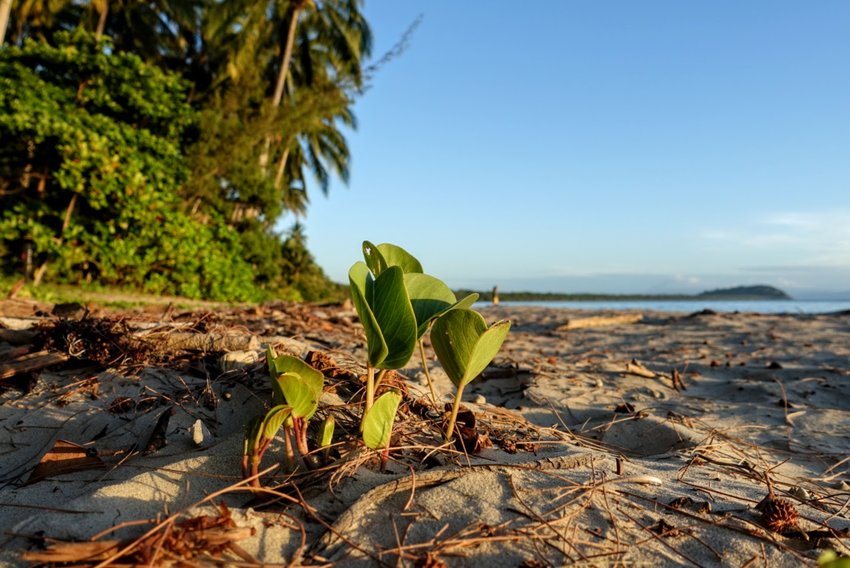
The sun can be ferocious and as travellers we’re likely to be out in it seeing and doing the things we came to enjoy. We need to protect ourselves from the intense sun, it’s a part of tropical life.
Living in the tropics it’s slightly different. Behavioural modifications take us out of the daytime glare and we time our outdoor activities to the daily cycles. We only go outside for walking, running, cycling and gardening very early or very late.
In actual fact, we usually run or cycle in the dark.
If you have to be out in the sun there’s that old rule, slip slop slap. Slip on a shirt, slop on some sun block, slap on a hat. Cover all the skin you can, protect what you can’t cover with sun block (AKA sunscreen)
As mum to a child who recently had sunstroke, while wearing a hat. Yes, you can still get sunstroke wearing a hat.
Don’t get complacent. Seek shade, avoid full sun. A hat and sunscreen won’t necessarily prevent sunstroke in extreme tropical climates.
Tropical Living Tip: Mad dogs and Englishmen go out in the midday sun. Adjust your behaviour and take full advantage of the cooler hours. Stay indoors or in the shade as much as possible when the sun is fierce
Tropical Weather – Storms
Flooding is a tropical danger you might not have considered when planning your tropical travel or vacation. Tropical storms can be really amazing to experience, but they can also be dangerous.
High winds, falling trees, road closures and power losses are something to consider. Will you have adequate shelter in case of cyclones, typhoons or severe tropical storms? I wouldn’t want to be in a tent.
Tropical Living Round-Up
Over to you. Do you have any more tips for coping with tropical climates? A lot of our readers are planning long-term slow travel to Southeast Asia or similar tropical countries, from the UK, the cooler parts of Europe, or North America. Some are thinking of emigrating to live as ex-pats and moving to tropical regions.
They’ve never experienced the realities of tropical life and it can be a shock.
Even if you’ve holidayed in India, Sri Lanka, Costa Rica, or Thailand before emigrating to live in the tropics you’ll probably find the practicalities of longer term living slightly challenging. This post aims to help with tips born of experience. If you have any questions or advice concerning the pros and cons of living in a tropical environment, leave them in the comments.
If you'd like to hire a car during your stay, use this car rental comparison tool to find the best deal!
We also suggest you take a look at this company to get a quote for all kinds of the more tricky adventure or extended travel insurance.
Try Stayz / VRBO for an alternative way to find rentals on homes/apartments/condos in any country!

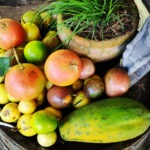
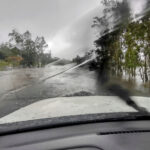

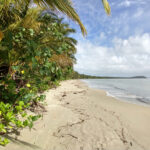

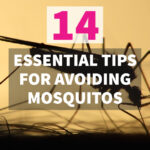


“…heat and humidity of tropical Southeast Asia in Thailand, Vietnam, Singapore, Bali and in the equatorial climate of Malaysia, as we travelled the world.“
I hope you did not list Bali among other SEA countries on purpose as Bali is an island in Indonesia. Therefore, you should’ve put Indonesia in the mix. Miscommunication like this is what made numerous people around the world think Bali is a country.
Have a great day!
@V, Where did I say Bali was a country? I didn’t. I think there are maybe comprehension issues here V. This post could help you https://worldtravelfamily.com/where-is-bali/
So relatable! I live in Miami and always have to walk in the shade of trees and protect my house from bugs because if you leave your window open for 5 minutes palmetto bugs and mosquitoes fly in and terrorize me. Not to mention lizards, and large lizards, everywhere…
Do you get pythons and other, more deadly, snakes in Miami or Florida? That’s another thing we have to live with here and why I’ll never, ever, leave a door or window open. I’m getting a guard goose and some guinea fowl to hopefully keep snakes away from the house, and eat ticks and other bugs.
I agree with most of your writings, I lived on an island east of Cancun for 7 years. then moved to dryer hotter area to Merida for the last year. Two completely different worlds, that are 4 hours drive apart. It did take me at least a year to get acclimated to temperature and humidity.
Yep, still here, still sweating. But when it’s cool it’s lovely!
This is helpful, thank you! We are in the early stages of planning a travel year (or two) with our kids and southeast Asia is one of our targeted areas. I had never considered many of the things on your list here. I appreciate the advice! 🙂
It’s funny, most of the above I don’t notice while travelling, only at home. Most are connected with house work and laundry I guess, and we don’t do that on the road.
SO BAD DIDNT LEARN ANYTHING IM IN SCHOOL!
It’s never too late to learn!